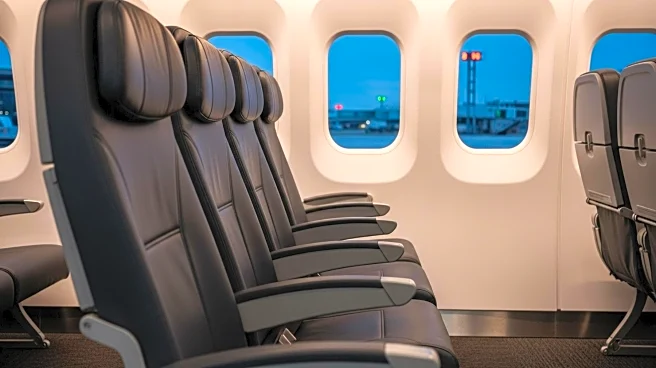What's Happening?
The US Department of Transportation (DOT) has revoked the interstate certificate authorities of four airlines: AirTran Airways, Continental Airlines, US Airways, and Virgin America. These carriers have long since ceased operations following mergers and acquisitions by other major US airlines. Virgin America, the most recent of these airlines to stop flying, ceased operations in April 2018 after being acquired by Alaska Airlines. The DOT's decision, dated September 3, reflects the cessation of operations by these former air carriers. According to DOT regulations, if an air carrier does not resume operations within one year of cessation, its certificate authority is revoked for dormancy. Despite this rule, the certificates remained active for several years after the airlines stopped operating.
Why It's Important?
The revocation of these certificates marks the end of an era for several notable airlines that played significant roles in the US aviation industry. The consolidation of these carriers into larger airlines has contributed to the dominance of the 'Big Four' US carriers: American Airlines, Delta Air Lines, Southwest Airlines, and United Airlines. This consolidation has led to increased market power and profitability for these major airlines, raising concerns among analysts about their potential to become 'too big to fail.' The decision by the DOT underscores the ongoing impact of airline mergers on the industry, affecting competition and consumer choice.
What's Next?
The revocation of these certificates is unlikely to have immediate effects on the current airline market, as these carriers have not operated for several years. However, it may prompt discussions about the regulatory oversight of airline mergers and the long-term implications for market competition. Stakeholders, including consumer advocacy groups and industry analysts, may call for increased scrutiny of future mergers to ensure a competitive landscape that benefits consumers.
Beyond the Headlines
The consolidation of airlines raises questions about the balance between efficiency and competition in the aviation industry. While mergers can lead to operational efficiencies and cost savings, they may also reduce competition, potentially leading to higher fares and fewer choices for consumers. The DOT's decision highlights the need for careful consideration of the long-term impacts of airline mergers on the industry and consumers.









